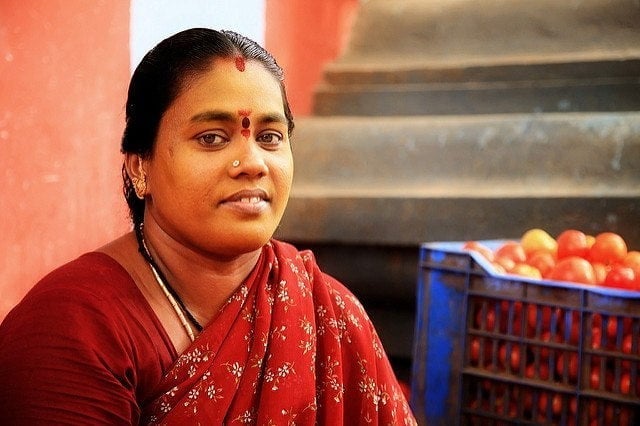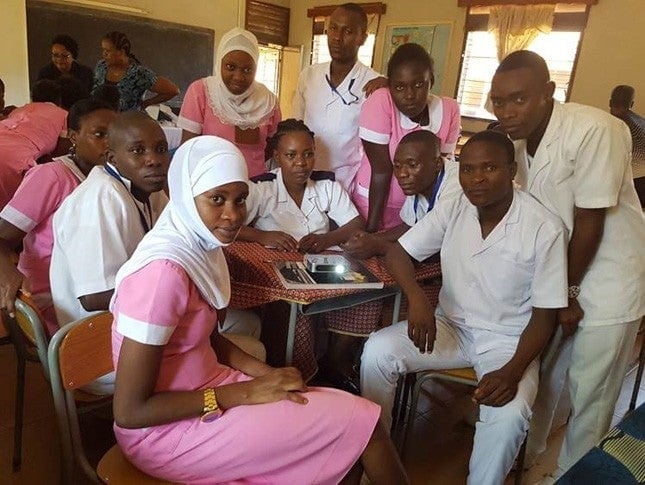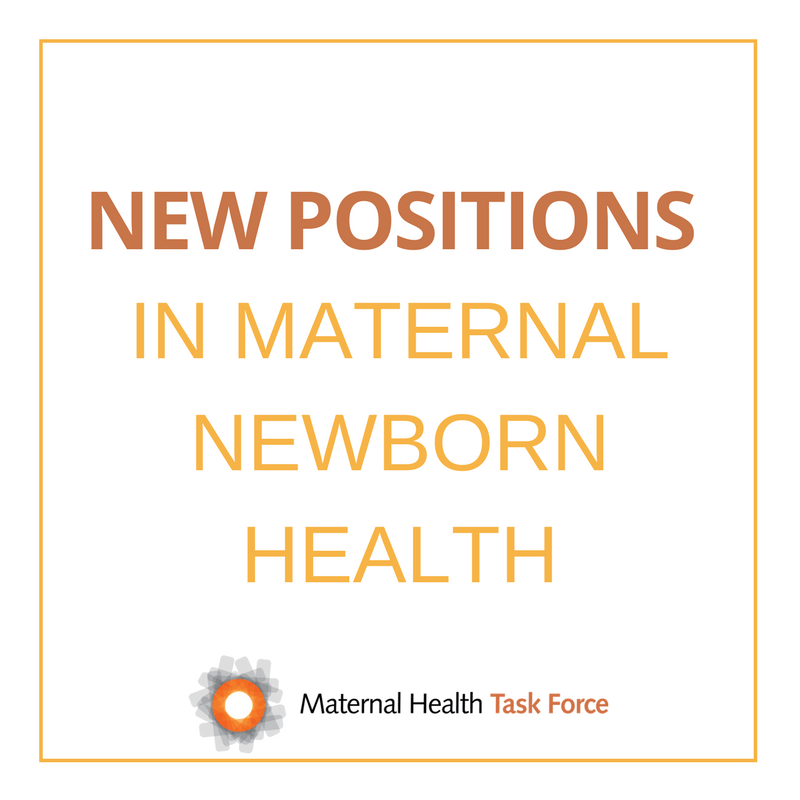Maternal Health Task Force
The Maternal Health Task Force strives to create a strong, well-informed and collaborative community of individuals focused on ending preventable maternal mortality and morbidity worldwide.
677 Huntington Avenue
Boston, MA 02115
Blog
-
Facilitators and Barriers to Engaging Communities in Maternal and Newborn Health Programs
Involving community members throughout the process of designing, implementing and evaluating maternal and newborn health interventions is critical to the success and sustainability of programs. A recent review examined factors that contribute to effective community participation in maternal and newborn health programs…read more
-
Resource Round-Up: Nutrition and Maternal Health
Ensuring proper nutrition is key to optimizing the health of pregnant women, mothers and newborns. In recognition of World Food Day, the Maternal Health Task Force has rounded-up resources related to nutrition and maternal health…read more

-
Why Doesn’t Every Woman Deliver With a Birth Companion?
There is strong evidence supporting the use of birth companions as providers of emotional support during labor to improve maternal and newborn health outcomes, as well as women’s experiences with maternity care. However, despite the substantial body of evidence and advocacy efforts surrounding this issue, many women across the globe do not have birth companions…read more
-
From the Archives | Recognizing Child Marriage as a Maternal and Women’s Health Issue
Fatimatah was forced into marriage by her family at the age of 16 and suffered severe physical, financial, educational and emotional consequences. Unfortunately, Fatimatah’s story is not hers alone: Globally, about one in nine girls marries before age 15, and about one in three marries before age 18. Early marriage puts young girls at risk of developing numerous negative maternal and reproductive health outcomes…read more
-
Reaching the Farthest Behind: Maternal Health Innovations at the Facility Level
On 14 September, as part of the Advancing Dialogue on Maternal Health Series, experts from the United Nations Population Fund, Jhpiego, Jacaranda Health and Total Impact Capital came together at the Wilson Center to discuss how maternal health clinics and other facilities can be drivers of innovation…read more

-
New Opportunities in Maternal Newborn Health
Interested in a position in reproductive, maternal, newborn, child or adolescent health? Every month, the Maternal Health Task Force rounds up job and internship postings from around the globe. In this month’s roundup, we are featuring positions at the White Ribbon Alliance, CARE, Population Reference Bureau and other organizations…read more

-
New Report Provides Snapshot of SRMNAH Workforce in East and Southern Africa
The United Nations Population Fund recently published “The State of the World’s Midwifery: Analysis of the Sexual, Reproductive, Maternal, Newborn and Adolescent Health (SRMNAH) Workforce in East & Southern Africa.” The report uses the framework of the 2014 State of the World’s Midwifery report to assess the SRMNAH workforce in 21 countries in the region…read more
-
South Sudan’s Mission to Help More Mothers Survive Childbirth
As South Sudan grapples with a four-year civil war and persistent famine, it is also struggling with one of the highest maternal mortality ratios in the world. Health experts attribute the high rate of maternal deaths to an ailing health care system, lack of infrastructure and an acute shortage of skilled health workers…read more
-
Providing Equitable, High Quality Maternity Care in the Context of a Limited Health Workforce: Lessons From Nigeria
How do developing countries facing severe shortages in well-trained, equitably distributed health workers ensure access to high quality maternal health care for all women? There are several potential solutions that may be feasible in the short-term, which are currently being tested in Nigeria…read more
-
The Struggle to Provide Culturally-Appropriate Maternity Care
How have program implementers, clinicians and researchers approached the issue of providing culturally-appropriate maternity care, and what challenges have they encountered? A recent paper in BMC Pregnancy and Childbirth aimed to answer these questions…read more